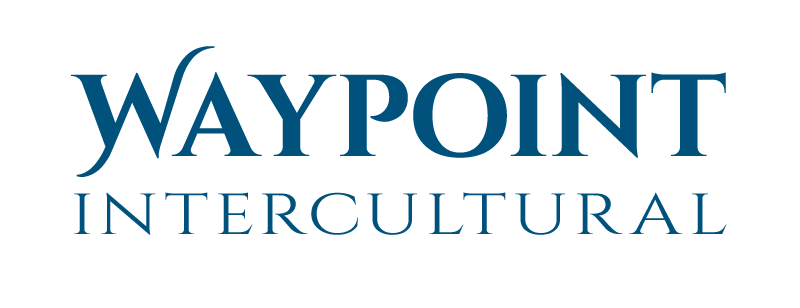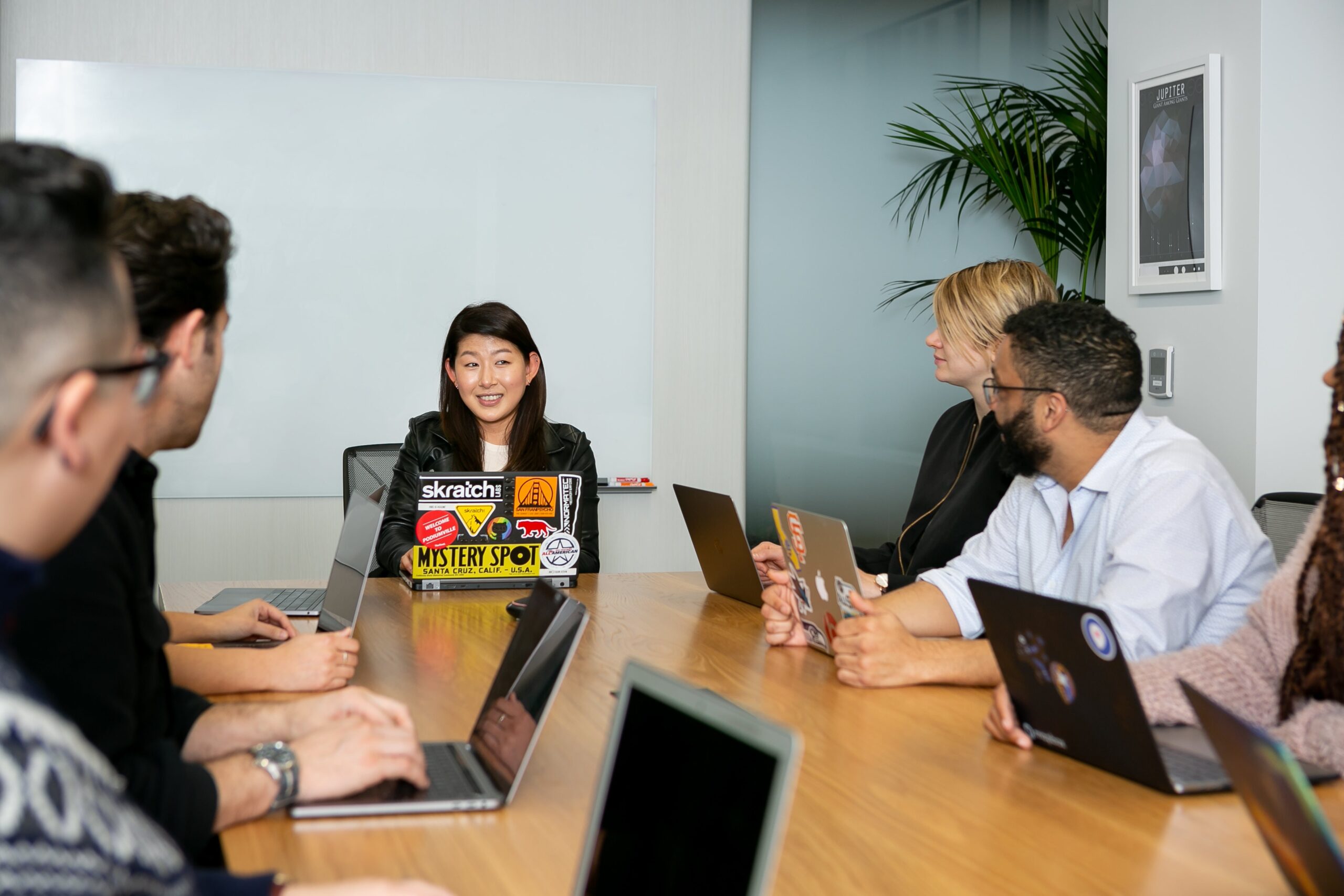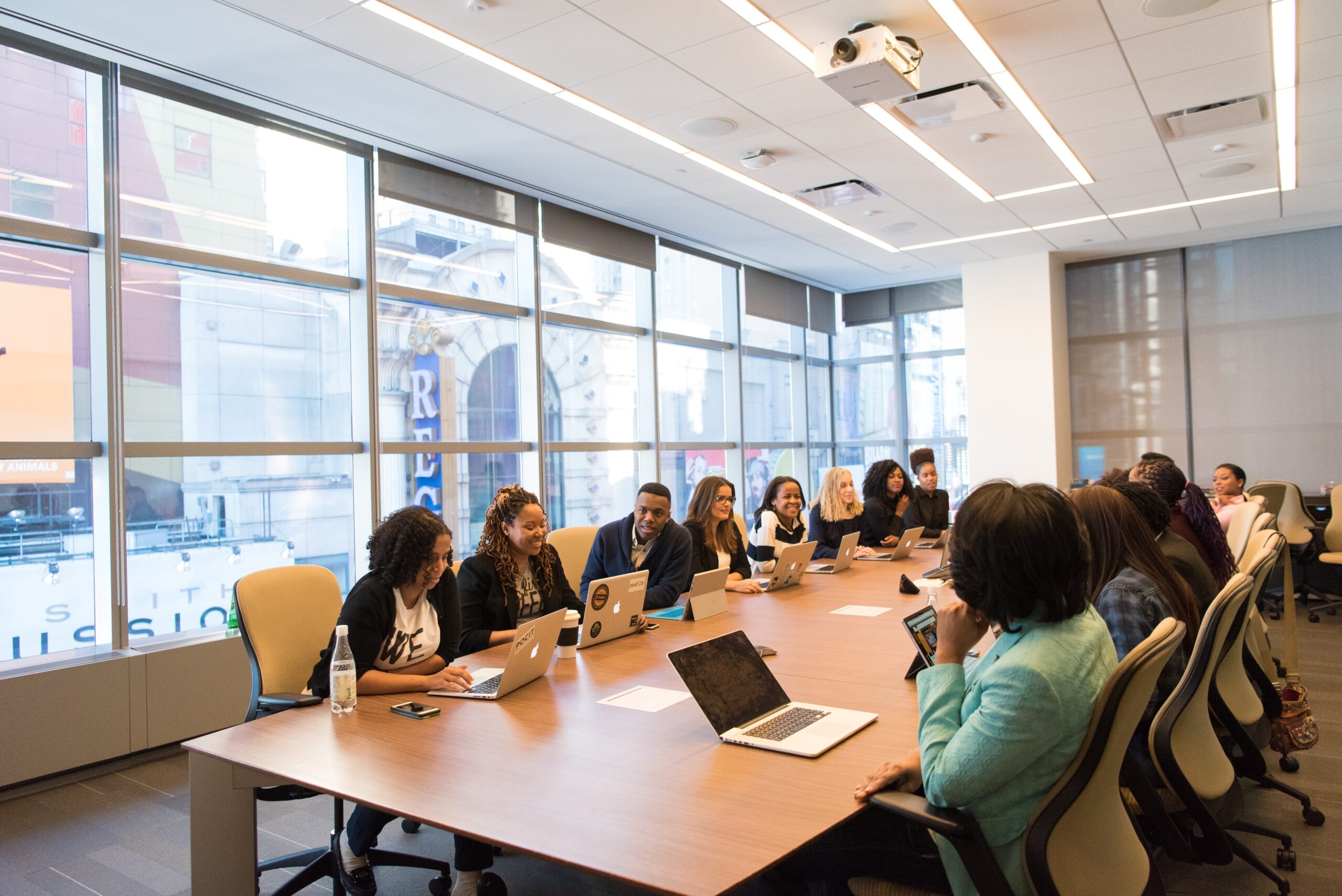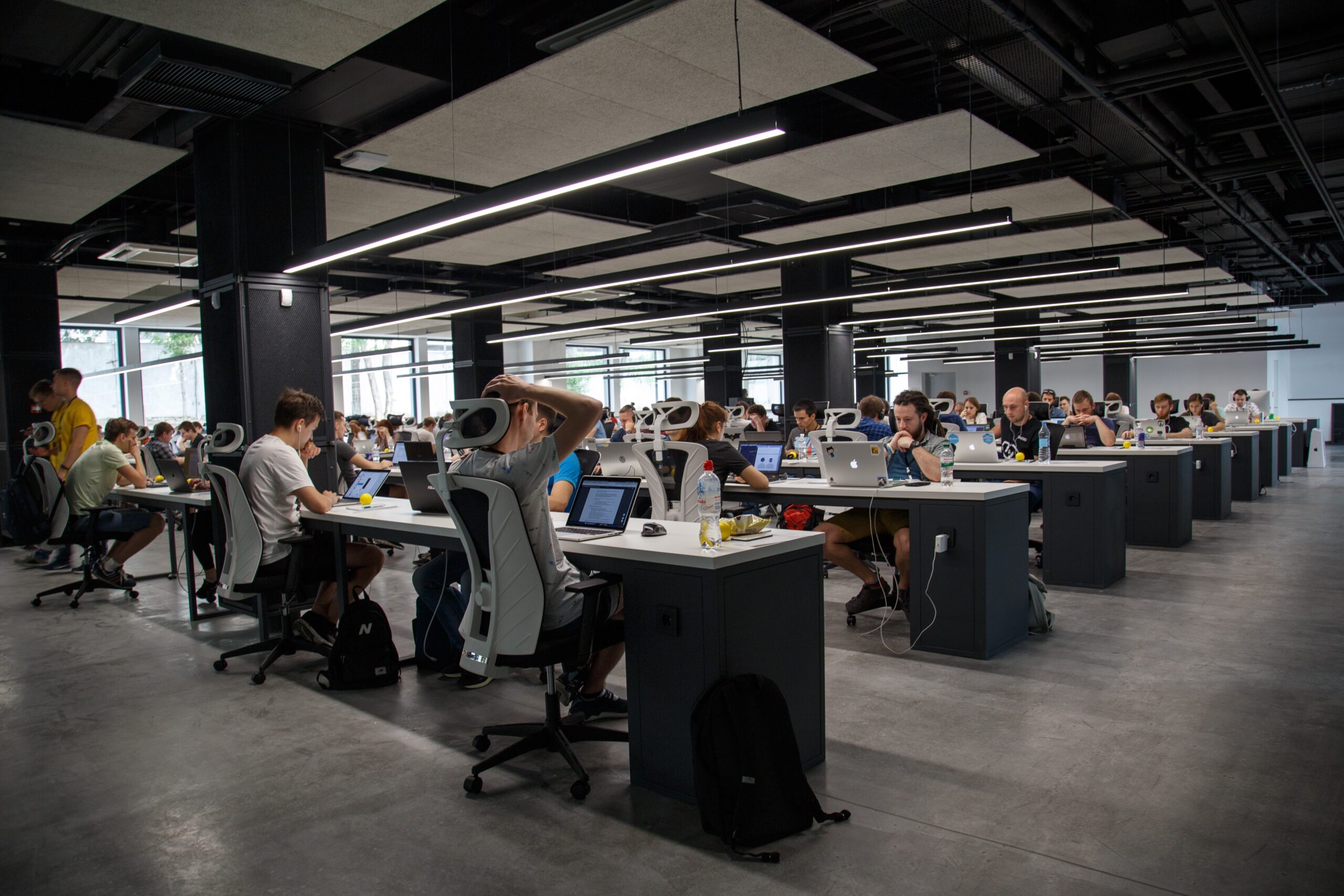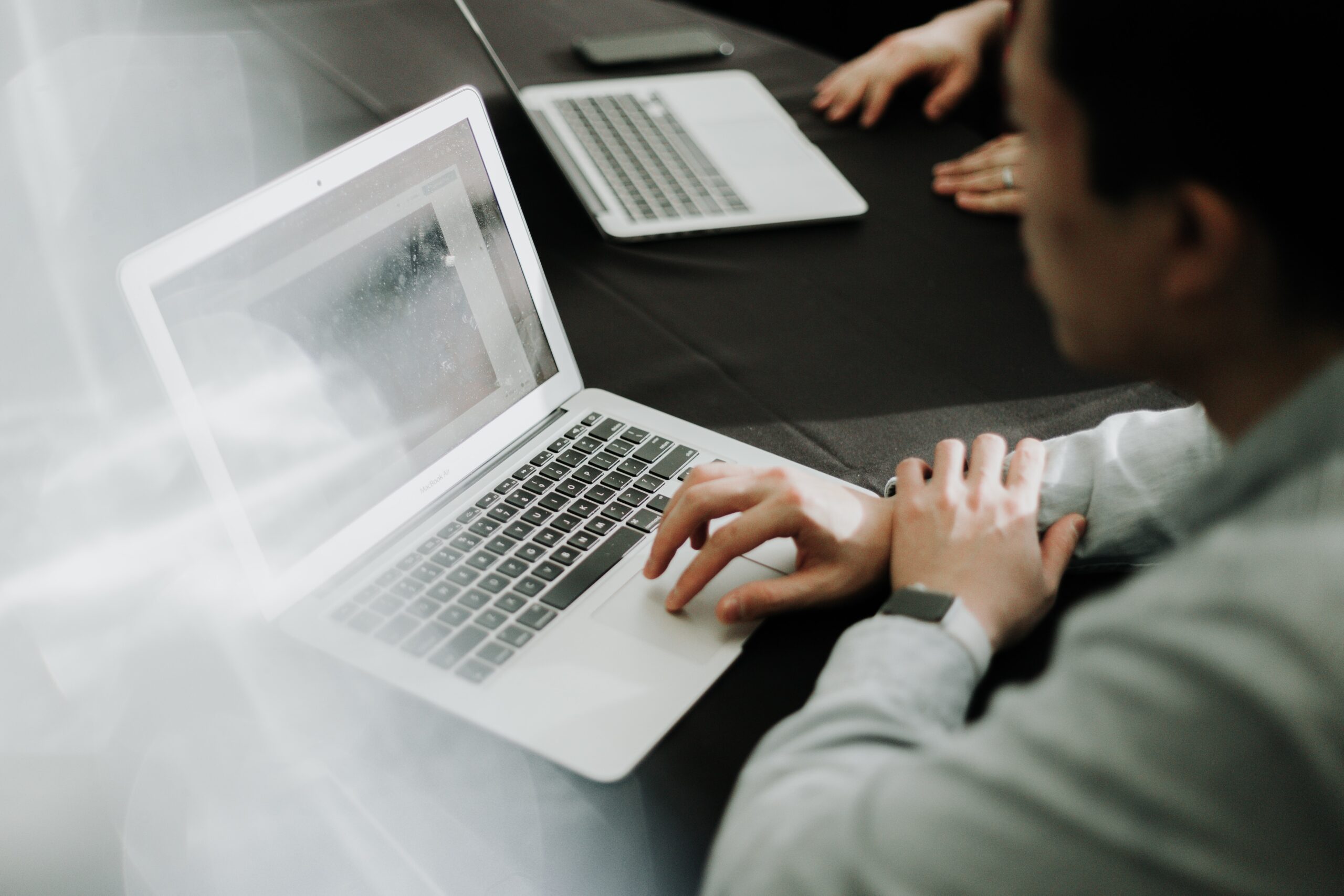Intercultural Leadership Cohorts
By popular demand: Waypoint is now offering its signature Intercultural Leadership Cohort and Certificate Program directly to organizations!
Waypoint’s Intercultural Leadership Cohorts bring together the best of what Waypoint offers. They combine the most impactful elements of our beloved training programs, while infusing interculturally informed leadership development coaching. Waypoint’s Cohorts offer a safe and brave space that supports and challenges cohort members, all while adding to their leadership skill set, and building capacity to effectively navigate the many “differences that make a difference” in a workplace.
Working directly with your organization through your own cohort allows us to customize our program to be geared specifically towards your leaders’ needs and unique contexts, building on their strengths, and effectively supporting them through opportunities for growth and development.
Foundational Intercultural Competence Development Series
Our signature training series for groups looking to boost their ability to navigate difference effectively, the Foundational Intercultural Development Series is a 4 module series delivered through synchronous and asynchronous sessions.
These modules are interactive and combine core intercultural and DEI concepts, as well as introduce participants to the Intercultural Development Inventory (IDI), an internationally recognized tool that quantifies an individual’s or group’s intercultural competence. The last module of this series focuses on understanding the IDI score of the group and exploring the strengths and opportunities and possible next steps.
Best practices in the field of diversity, equity, and inclusion, as well as the latest research and Waypoint’s professional experience in Maine and nationally, indicates that inclusivity and equity are more likely to happen when organizational leaders and staff have an “intercultural mindset” as measured by the Intercultural Development Inventory®, or IDI®.
Cultural General Frameworks Series
This training series will focus on expanded intercultural competency topics that are aligned to where a group is developmentally and to the goals of the organization or school.
Specifically, this training series continues to build cultural self-awareness and cultural other awareness in services of addressing and mitigating misunderstanding and conflict among cultural groups and building intercultural leadership capacity.
Based on the groups’ Intercultural Development Inventory (IDI) scores, the most effective and impactful intercultural learning opportunity may be to focus on “cultural general frameworks” also sometimes referred to as “dimensions of cultural difference”. Essentially, themes that run across cultures and can explain how cultures are different from one another. Research indicates that knowing these cultural general frameworks builds capacity to lead effectively across many types of difference. And, applying and operationalizing this knowledge will lead to a more equitable, thriving workplace, where everyone truly experiences a sense of belonging.
This training series will build theoretical knowledge and real-world application skills in cultural general frameworks, with a focus on dimensions that have the most significant impact in the workplace.
Participants will build diagnosis skills to discern when a dimension may be powering a conflict, as well as real-world adaptation skills for how to respond to the difference in the future.
BARNGA: An Experiential Cross-Cultural Communication Simulation | 2 hours (In person only)
This classic and timeless experiential learning activity continues to be used widely to help people navigate difference. This activity, consisting of several small groups, is card-game like, but so much more. As described by the University of Michigan Center for Inclusive Teaching: “BARNGA is a simulation game that encourages participants to critically consider normative assumptions and cross-cultural communication. It was created by Sivasailam “Thiagi” Thiagarajan in 1980, while working for USAID in Gbarnga, Liberia. He and his colleagues were trying to play Euchre, but all came away from the instructions with different interpretations. He had an ‘a-ha’ moment that conflict arises not (only) from major or obvious cultural differences but often from subtle, minor cues. He created the game to tease out these subtleties.”
Goals/Objectives: (as described by University of Michigan Center for Inclusive Teaching and The European Federation of Intercultural Learning):
Participants will:
-
- Learn to communicate effectively across cultural groups
- Help interrogate assumptions they may have about group norms and to critically analyze where those norms have come from, determining whether or not they continue to be useful in future contexts
- Understand what happens when we are not utilizing the same “rules” or “norms” as others in the group
- Explore what the role of communication is in helping us either be confused or understand one another
- Have awareness raised of our reactions in conflict and communication styles
Redundancia: A Foreign Language Simulation | 1.5 hours (In person only)
Words have power, as we know. But what happens when there is a language barrier? How we handle that barrier can either help us to create connection with or disconnection from the person whose language is different from our own. In this session, participants will take part in an experiential activity that replicates communicating in a non-native language–they will experience the challenges and triumphs. From that, we will glean best practices for creating connection and understanding across language differences. These skills can be essential for monolingual leaders supervising multilingual staff or with anyone interacting with someone who is communicating in a non-native language who wants to help create belonging.
Created by the Cultural Detective, LLC, this experiential learning activity continues to be a gold standard in developing awareness and strategies for communicating effectively with people who speak different languages.
Goals/Objectives:
Participants will experience: (as described by Cultural Detective, LLC)
-
- speaking a language non-fluently
- how speaking in a non-native language affects one’s
- ability to stay focused and connected with the listener
- feelings of competence and confidence
- listening to second language speakers, and noticing their own tendencies to help or to become distracted
Participants will then:
-
- Discuss and learn best practices for communicating effectively with those who speak different languages
Understanding and Responding Effectively to Microaggressions | 2 Hours (In person or remote, with asynchronous hybrid option)
Adapted from a two part training created by Waypoint’s founder and commissioned by the Maine Department of Education, this session utilizes several different learning modalities including videos, discussion, and “micro-journaling” to help participants understand microaggressions, their impact, and what can be done proactively and in the moment to effectively respond.
Goals and objectives:
Participants will:
-
- Learn definitions and examples of microaggressions
- Understand the difference between intention and impact
- Learn the effects of microaggressions on employee belonging and engagement
- Be equipped to put into practice best practices for interrupting and responding to microaggressions
Navigating Conflict Using The Intercultural Conflict Style InventoryⓇ (ICS) | 2 Hours (In person or remote)
How we deal with conflict is learned, often from the people and environments around us as we grew up. The Intercultural Conflict Style Inventory is a short, online assessment tool that quantifies and gives incredible insight into how an individual deals with conflict and if it is similar to or different from the country or cultural group they grew up in. Knowing this, and knowing how other groups may approach conflict, gives leaders and employees more knowledge and insight about how to deal with conflict, particularly with a person from a different cultural group. This session will dive deeply into the different approaches to conflict and provide best practices on how we can bridge effectively across those styles and cultures, without abandoning our own approach.
Goals and objectives:
Participants will:
-
- Understand that how we engage in conflict is influenced by our cultural groups
- Learn the four intercultural conflict styles, including characteristics, strengths and limitations
- More deeply understand the conflict style of self and others
- Learn best practices for engaging effectively across conflict styles
Exploring the Cultural Self: “What’s Self got to do with it?” | 1.5-2 hours (In person or remote)
In their book The Art of Possibility, Zander and Zander ask the question: “What assumptions am I making, that I’m not aware I’m making, that gives me what I see?” One of the best ways to understand our assumptions and gain awareness about them is to better understand our “cultural self”. In other words, the parts of ourselves, based on the various groups we belong to, that may influence who we are, what we experience, and what we see. This session does a deep dive into looking at our own beliefs, values, and advantages or disadvantages that we each have, considering how that may play out in the workplace. It includes interactive activities, as well as small group discussion and individual reflection to more deeply understand what makes us who we are and why that is important in our navigation of difference in the workplace and beyond.
Goals and objectives:
Participants will:
-
- Understand what “cultural self” is and its importance in DEI work
- Explore the beliefs, values, and advantages/disadvantages various groups we inhabit
- Consider how this impacts our navigation of difference in the workplace
- Discuss and present a framework to put this understanding into action in the workplace
UNESCO Story Circles for Intercultural Learning | 2 Hours (In person or remote)
Storytelling is something that goes back to the literal beginning of humanity…and for good reason. It connects us to each other and helps us make sense of the world around us, often through sharing the wisdom of lived experience. In today’s world, and in the context of interculturally informed DEI work, storytelling is one of the few strategies that is effective for intercultural competency development across every Developmental Orientation, as determined by the Intercultural Development Inventory (IDI).
According to interculturalist Dr. Darla K. Deardoff of Duke University, who collaborated with UNESCO for a worldwide implementation and analysis of the Story Circles framework: ”Story Circles is a practical tool for developing and practicing intercultural competence. Story Circles bring people together in small groups, where they are able to share more about themselves or an experience by telling their own story based on a prompt.” This is followed by a debriefing and reflection, facilitated by Waypoint and guided by UNESCO’s and Deardoff’s best practices.
Per Deardoff: “The Story Circle processes provide a non-threatening way in which individuals can share their personal experiences and explore similarities, as well as differences, with each other.”
Goals and objectives:
Participants will:
-
- Demonstrate respect for others
- Practice listening for understanding
- Cultivate curiosity about similarities and differences with others
- Gain increased cultural self-awareness
- Develop empathy
- Engage in critical reflection on one’s own intercultural competencies development, as well as on the intercultural experience
- Develop relationships with culturally different others
Slavery And Maine: Giving Historical Context to to Present Day DEI Conversations | 3.5 hours (Hybrid only: 2 hours asynchronous online, 1.5 hour synchronous in person or on Zoom)
James E. Ford, an educator, activist, and restorative practice facilitator who can trace his lineage to the middle passage, joins together with Elizabeth (Liz) Greason, an interculturalist of European descent whose ancestors go back generations on the land that is now Maine, to explore an aspect of Maine history rarely discussed or acknowledged: the role that Maine played in the enslavement of Black Africans. (Mindful that although the enslavement, genocide, and systematic erasure of people indigenous to Maine are as important an area to explore, this population is not the focus of this session.)
This presentation gathers some of the most up to date research being done in this area, and presents it in a way that is both accessible to participants and that challenges their preconceptions. The presenters highlight primary sources, showing representation of both the enslaved and the enslavers, as well as the ways in which Maine’s major industries–the textile industry/cotton mills, for example–have a more complicated past. In the words of Kelly Stevens, a former Bowdoin College student who played a significant role in the exhibit “Cotton Town” at Maine Maritime Museum, which explored this complex legacy: “History is not about having all the answers, but telling a more complete story of the past.”
This learning experience seeks to be part of providing that more complete story and provide participants with new knowledge, so that they can better engage in conversations about and action toward racial justice in Maine.
Key Learning:
-
- Slavery existed on the land that is now Maine, though it looked different from the South
- Enslaved people resisted their oppression in large and small ways
- Maine’s economy–its major industries–benefited from slavery
- Participants can use this knowledge in their spheres of influence
An Entry Point for Everybody
Are you a leader who wants to make sure you’re creating a sense of belonging in your team? Are you someone who wants to develop personally and professionally, to continue to learn and grow so you can bring out the best in those you work with? Joining this seminar series will introduce you to a transformative framework for doing exactly that: the Intercultural Development Inventory (IDI).
In this program, you will:
- Complete online asynchronous modules, learning about game changing concepts to boost your capacity to lead effectively across differences (about 3 hours)
- Participate in a live Zoom discussion and experiential activity (about 1.5 hours)
- Take the IDI online (about 20 minutes)
- Meet 1-on-1 with a member of Waypoint’s team to debrief your IDI results and report, with coaching focused on your strengths and opportunities, with recommended next steps using your personalized Intercultural Development Plan (about 1 hour)
Intercultural Leadership Cohort and Certificate Program
Do you want to increase belonging in your organization or in your community and decrease polarization? Are you part of a committee working to enact change in your workplace, but have hit a wall or feel alone? Are you seeking professional development opportunities/CEUs or personal development around navigating these polarizing times? If so, the Intercultural Leadership Cohort (ILC) might be for you!
In this program, you will:
- Increase your leadership capacity around navigating difference
- Boost your ability to create environments where all people feel a sense of belonging
- Build your capacity to effectively and compassionately support and challenge individuals and systems in service of belonging
- Gain practical and theoretical knowledge through a customized, hybrid (synchronous and asynchronous) learning program
- Learn a five phase developmental framework that will increase your impact navigating differences and leading diverse teams
- Expand your professional network by connecting with others passionate about creating belonging and bridging across “differences that make a difference”
- Receive support from professional interculturalists through group coaching sessions
- Meet 1-on-1 with a member of our team to deepen your self-awareness and understanding of own unique contribution to this work and identify areas for growth
- Expand your capacity to put theory into practice and develop a plan to apply your knowledge in your context
- Receive a Certificate of Completion upon completion of curriculum
Our next cohort is scheduled for Spring 2025.
Intercultural Action Cohorts
How do we put theory into effective practice? How can we be reflective as we do this work, and compassionate–and accountable–with ourselves and each other? How do we act in a way that aligns our intention and our impact and centers the experience of those who are most marginalized? This program is open to individuals who have completed the Intercultural Leadership Cohort and Certificate Program or those whose organizations have completed the Foundational Intercultural Development Series.
In this program, you will:
- Learn a framework for effectively putting DEI and intercultural theory into practice
- Receive support and guidance and opportunities for self-reflection in monthly group coaching calls as you engage in the creation and implementation of new policies and/or procedures that center equity.
- Meet with an “accountability partner” or small group between coaching sessions
- Continue to deepen your self-awareness and understand of own unique contribution to this work and continue to work on individual areas for growth
- Expand your professional network by connecting with others passionate about DEI and intercultural work
- Receive support and accountability from professional interculturalists and fellow participants
Individual Intercultural Coaching
Individual Intercultural Coaching is a highly customized service, as it is a unique collaboration between the intercultural coach and the individual to build their capacity to effectively navigate differences that make a difference. This service is grounded in best practices from intercultural development theory in service of personal and professional growth.
It is unique in that it meets the individual exactly where they are in their development, based on the results of the Intercultural Development Inventory, building on their individual strengths and supporting their growth in ways that are both compassionate and accountable. Depending upon the individual’s goals, coaching sessions are an opportunity to support putting theory into practice on an individual, organizational, and/or systemic level.
Our coaching clients include:
- DEI professionals who want to add an intercultural development framework to their work
- Leaders who work across many types of “differences that make a difference” and are committed to building their leadership capacity
- Individuals, often recommended by HR or their supervisors, who need additional support in respectfully or effectively responding to difference or are resistant to DEI initiatives
Get in Touch
Have questions? Need more information? Send us an email and we'd be happy to contact you!
